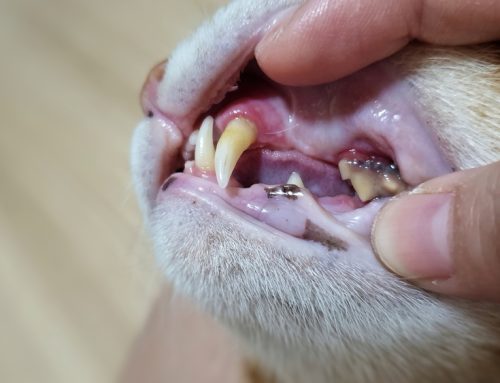Summer in Kansas brings an increased risk for illnesses caused by ticks and mosquitoes. The best solution to keep your dog healthy is preventing them from being infected. Our team at El Paso Animal Hospital wants to ensure you feel educated on the diseases these parasites transmit, and how to best protect your dog.
Ticks: What diseases can they transmit to my dog?
Ticks lurk in grassy and wooded areas, and climb aboard your dog at an opportune moment. Once attached, they must remain in place for at least 24 hours to transmit disease. Diseases they can transmit include Lyme disease, anaplasmosis, and ehrlichiosis.
- How does Lyme disease affect my dog? — Lyme disease is a bacterial infection transmitted by the black-legged tick. The bacteria Borrelia burgdorferi enter your dog through the tick bite and travel to many locations in your dog’s body. Signs include fever, lethargy, decreased appetite, and joint pain and swelling. In severe cases, the kidneys may be affected, resulting in vomiting and weight loss.
- How does anaplasmosis affect my dog? — Anaplasmosis is a bacterial infection transmitted by the black-legged tick or the brown dog tick. The black-legged tick transmits the more common Anaplasma phagocytophilum, which results in fever, lethargy, decreased appetite, and joint pain. The brown dog tick transmits A. platys, which causes problems with clotting, and results in unexplained bruising and bleeding.
- How does ehrlichiosis affect my dog? — Ehrlichiosis is a bacterial infection transmitted by the brown dog tick. The bacteria Ehrlichia canis causes three stages of illness in your dog.
- Acute phase — Signs include fever, swollen lymph nodes, respiratory distress, weight loss, bleeding disorders, and possibly neurologic signs. This stage lasts two to four weeks, and if not treated and cleared during this time, your dog enters the sub-clinical phase.
- Subclinical phase — The organism sequesters in your dog’s spleen, and no signs are exhibited during this phase. This phase can last for months or years, and some dogs never leave this phase.
- Chronic phase — When your dog’s immune system cannot eliminate the infection, they will enter the chronic phase. Signs include bleeding episodes, ocular problems (e.g., inflammation or hemorrhage inside the eye), swollen limbs, and neurologic issues. If the bone marrow is attacked, your dog will be unable to produce life-sustaining blood cells.
How is my dog diagnosed with a tick-borne illness?
Many tick-borne illnesses cause similar signs in affected dogs. Our veterinary professionals at El Paso Animal Hospital will carefully consider your dog’s history and their signs. We will perform a thorough physical examination, and order blood tests to check for antibodies against the specific tick-borne illness. Diagnosis is typically made based on your pet’s signs, a positive test result, and treatment response.
How is my dog treated for tick-borne illnesses?
Tick-borne illnesses are usually responsive to specific antibiotics. Your dog will likely require treatment for at least four weeks, and longer, if their case is more chronic. For pets affected by kidney issues or bleeding abnormalities, hospitalization for supportive treatments may be necessary.
How can I prevent tick-borne illnesses from affecting my dog?
After you have been outside, check your dog closely for ticks, especially their ears, under their tail, their groin, and armpits. Keeping your dog on a year-round flea and tick preventive provides them the best protection. Our team at El Paso Animal Hospital recommends Bravecto, Simparica Trio, or Credelio for tick prevention.
Mosquitoes: What diseases can they transmit to my dog?
Mosquitoes can transmit numerous diseases, but the most common problematic condition for dogs is heartworm disease. A single bite from an infected mosquito can transmit heartworm larvae, which can grow to adulthood, mate, and produce offspring inside your dog’s heart.
- How does heartworm disease affect my dog? — Heartworms accumulate in your dog’s heart, causing damage to their heart, lungs, and vasculature. In the initial stages, your dog may not show any disease signs. Dogs who are heavily infected, affected by another illness, or especially active usually show the most pronounced signs, including a mild, persistent cough, fatigue after mild exercise, decreased appetite, and weight loss. If your dog has a heavy infection, a sudden blockage inside the heart can cause caval syndrome, a condition that causes respiratory distress, pale gums, bloody urine, and collapse.
How is heartworm disease diagnosed and treated in my dog?
A simple blood test can diagnose heartworms. If your dog has heartworms, our El Paso Animal Hospital team will first stabilize them. Then, once your pet is healthy enough, our team will develop an individualized treatment protocol.
How can I prevent my dog from being affected by heartworms?

The veterinarian team at El Paso Animal Hospital looks at heartworm protection based on your individual pet needs. Where you live, what activities you enjoy with your pet, and the age and health of your pet all play a factor in recommending the best protection.
Year-round preventives play a vital role in protecting your dog from heartworms. The Proheart injection every 6 or 12 months is a doctor and client favorite at El Paso, as it is administered by your veterinarian and ensures heartworm protection for 6 to 12 months at a time.
Interceptor Plus is another favorite, protecting against heartworm, hookworms, whipworms, roundworms and tapeworms. Simparica Trio is another great option to protect your dog against heartworms, as well as fleas, ticks, hookworms, and roundworms.
If you think your dog may be affected by a tick-borne illness or heartworm disease, or you would like to discuss the preventive measures best for your pet, contact our team at El Paso Animal Hospital.







Leave A Comment